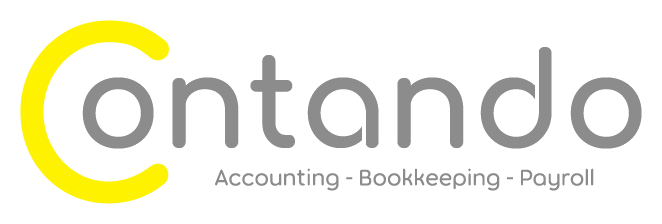New Year’s Resolutions
If you are anything like me you will have spent some of your holiday time reflecting on 2021 and looking ahead to 2022. I hope you have spent some time relaxing too.
Just as you will make new year’s resolutions for yourself, here are my suggestions for new year’s resolutions for your business.
- Get into good habits
- Learn a new language
- Keep on running
Get into good habits
We all know that a routine helps if we are going to maintain a healthy diet and an exercise plan, the same applies to running your business.
Stop making payments to suppliers ad hoc. As and when payments probably mean that you are paying based on reminders from suppliers about overdue payments. You are reacting and not taking control. It will be taking more of your time than it needs to.
Schedule regular times to make payments and unless there are emergencies then stick to it. Most people find that either fortnightly or twice a month works well. Plan for every 2nd Wednesday or every 14th and 28th of the month. Of course feel free to pick your own dates, but stick to the regular twice a month or fortnightly schedule. If you go with the twice a month option and one month the 14th and 28th (or whichever dates you have picked) fall on a weekend then for that month shift it forwards to the nearest weekday.
We are all used to payroll being at a regular point during the month. Apply the same discipline to your supplier payments too.
Put it in your diary and stick to it. You will be taking control and operating more efficiently. Doing fewer batches of payments will take less time than logging into your online banking at multiple random times during the month. Focused and dedicated time will allow you to work more effectively as well as more efficiently as you won’t have to be fighting off a thousand distractions while you squeeze a payment in between whatever else you were doing. You will carve out time for payment and stick to it.
Another routine you need to adopt is to review your numbers every month. Agree with your accountant or bookkeeper when your reports will be ready each month and block out time in your diary to review those reports.
Learn a new language
I don’t mean French or Spanish or Italian (although incidentally I am trying to improve my Italian).
I’m talking about improving your financial literacy. You need to learn to become fluent with your business’ numbers.
 Your finance software (we use Xero for bookkeeping and Spotlight for reporting) should be able to produce reports for you, and your accounting team should be able to let you know when the transactions are processed each month and the reports are ready. The tricky bit can be understanding what those reports mean.
Your finance software (we use Xero for bookkeeping and Spotlight for reporting) should be able to produce reports for you, and your accounting team should be able to let you know when the transactions are processed each month and the reports are ready. The tricky bit can be understanding what those reports mean.
Just like learning a language, it’s not always easy to become fluent on your own so if you need a guide or a teacher for support then reach out to your accountant or bookkeeper. They should be able to make the reports and numbers come alive so that you can understand them and use them to help you to make good business decisions.
You should be reviewing the profit and loss report and understanding how profitable the business is each month, quarter and year. Context can help with this understanding, so compare the results from this month to last month (April vs March) and from this month to the same month last year (April 2022 vs April 2021).
With my Italian I am progressing from a very basic “good morning, how are you” to being able to conjugate verbs and hold a conversation (albeit a slow and basic conversation). Your financial literacy will progress too if you push yourself to practice.
A good next step would be to review ratios and comparisons. These will be different in each organisation depending on how you operate and what sector you work in (just like conjugating verbs is a little different in different languages). Examples of the sorts of things you can look at are costs of key elements of your business compared to your income. For one business we work with, calculating the cost of freelance staff as a % of income and comparing that % over a period of time helps them to understand how efficient they are being and where they can do better. This is a common metric for businesses who use non-payrolled staff. You might also want to compare your payroll bill as a % of your income. Your business will probably have more than one metric that you want to compare. Put the time and effort in to understand what is right for your business and what gives you the right information to help you to understand your business and make decisions.
Another good comparison is to look at results against the budget you set at the start of the year. If the results are different to the budgeted figures then understand what they are telling you. Interrogate the number and ask them questions, demand answers. Is the business operating more efficiently than you thought it could? Does it cost more to deliver your services than you were expecting? Why is that? What can you change to improve the results? Why are staff costs a higher proportion of your costs this year compared to last year? Is that ok? Which product lines give you the best return? Why is that? Can you focus the business more towards those profitable areas?
The reviews of the profit and loss reports and key ratios for your business are a great start.
To stretch the language analogy a little further, just as some people will focus on expanding their business mandarin skills to advance their career and others will focus on improving their conversational French to enjoy a holiday, your financial literacy lessons will need to be tailored depending on what your focus is.
If you are concerned about managing cash then you need to learn to understand a cashflow report and armed with an aged payables, aged receivables along with data about your debtor days, inventory days and creditor days, use this suite of information to manage to cashflow as you run the business .
If you are looking for investment and funding you may need to focus on the balance sheet to understand the picture it paints about the assets and liabilities of the business.
Talk to your accountant or bookkeeper about what you need and they will be your guide.
Keep on running
My best friend did the couch to 5k program a few years ago. She subsequently received a fitness tracker as a birthday present and continues to measure her progress. Since then she has taken part in a number of charity runs, built up from 5k to 10k and last year ran a half marathon. Not only has she increased the distance that she runs, she also texts me whenever she beats her personal best time.
My third suggestion for a new year’s resolution is to set goals and to measure your progress towards them.
Your goals, just like your business, won’t be the same as everyone else’s. You may want to expand sales, you may want to set a target of earning £x per month. But goals won’t be and should always be about growth. Your goal may be to maintain your income whilst reducing the hours you work in the business so that you can spend more time on your hobbies or with your family. Your goal may be to build up to giving away a certain % of the profit to causes close to your heart. Maybe you want to build up the cash reserves so that you can weather future storms. Maybe you want to get the business to a position where you can sell it. Maybe you want to set up a network of branches across the country.
Each of these goals will need a different set of steps to achieve them.
I can’t tell you what your goals should be. If you are my client I can work with you to achieve your goals. We can work out a plan of action together and take the steps make it a reality. But your goals will always be personal to you and your life.
 There is a saying that “what gets measured gets done” and that’s why I suggest measuring progress. Block out time in your diary every month or every three months, pick an interval that works for you. But block out that time and protect it and use your new found literacy skills (resolution number 2) to review progress against your goals. Tweak your goals if you need to. If a marathon is too much, then scale it back and aim for a 10k, knowing that you can aim for the marathon next year. Maybe you won’t achieve the marathon, but you will have made more progress than if you had stayed on the sofa so its still a win! If you have progressed quicker that you thought you would then feel free to change the half marathon goal and push yourself towards a full marathon. The important thing is to have a target and to be running towards it.
There is a saying that “what gets measured gets done” and that’s why I suggest measuring progress. Block out time in your diary every month or every three months, pick an interval that works for you. But block out that time and protect it and use your new found literacy skills (resolution number 2) to review progress against your goals. Tweak your goals if you need to. If a marathon is too much, then scale it back and aim for a 10k, knowing that you can aim for the marathon next year. Maybe you won’t achieve the marathon, but you will have made more progress than if you had stayed on the sofa so its still a win! If you have progressed quicker that you thought you would then feel free to change the half marathon goal and push yourself towards a full marathon. The important thing is to have a target and to be running towards it.
If you set targets and measure your progress towards them then even if you don’t hit the target, you will still be closer to it. Or to put it another way, shoot for the moon. Even if you miss, you’ll land among the stars.
So there you have my three new years resolutions for your business:
- Get into good habits
- Learn a new language
- Keep on running
